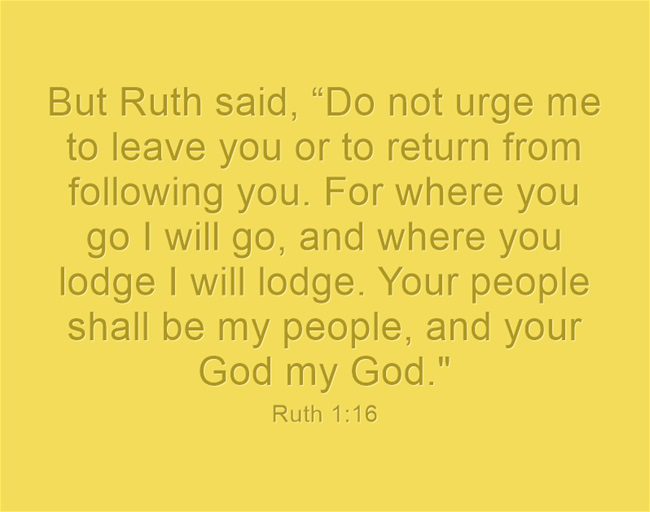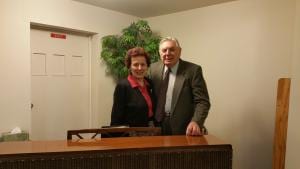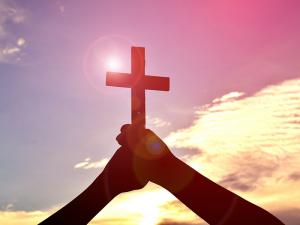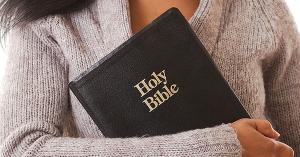Here is a Sunday school lesson about Ruth.
Your God is my God
Ruth 1:16 “But Ruth said, “Do not urge me to leave you or to return from following you. For where you go I will go, and where you lodge I will lodge. Your people shall be my people, and your God my God.”
After Naomi and her daughter-in-law’s husbands all died, Naomi had to go back to the land of Judah (Ruth 1:7) and so she said to them, “Go, return each of you to her mother’s house. May the Lord deal kindly with you, as you have dealt with the dead and with me” (Ruth 1:8) but “Orpah kissed her mother-in-law, but Ruth clung to her” (Ruth 1:14) meaning Orpah went back to Moab but Ruth said wherever Naomi went, she would go. Ruth desired that Naomi’s people would be her people and her God, Ruth’s God.
Did Ruth know that Naomi’s people would accept her because remember, she was a Moabite and Naomi’s people were Israelites?
Why didn’t Orpah go with Naomi?
Did Ruth take a risk in going to the land of Judah?
Ruth Meets Boaz
Ruth 2:22 “And Naomi said to Ruth, her daughter-in-law, “It is good, my daughter, that you go out with his young women, lest in another field you be assaulted.”
In ancient Israel, whatever grain the harvesters left was to remain in the fields because those gleanings were for those who were widows and orphans and had no other means to support themselves. That was one of the laws of ancient Israel intended to protect people like Naomi and Ruth. The best places to glean were often at the corners of the fields where harvesters might miss some grain while turning, but for Ruth, Boaz intentionally made sure she and Naomi had enough (Ruth 2:8-9). One thing Ruth 2:22 shows is Naomi’s concern for Ruth’s safety because she thought Ruth should go with a group of women, who must have been working in a particular field, and stay out of the other fields in case she’s assaulted but again, Boaz promised “Have I not charged the young men not to touch you” (Ruth 2:9)? You have to wonder if Naomi and Boaz had concerns for Ruth’s safety in the fields because some women had already been assaulted.
Did Ruth worrying about Ruth’s safety mean the land of Judah was a little dangerous to live in for some?
Was there still justice in the land of Judah?
Was Boaz showing his role in being a kinsman redeemer already?
Kinsman Redeemer
Ruth 4:6 “Then the redeemer said, “I cannot redeem it for myself, lest I impair my own inheritance. Take my right of redemption yourself, for I cannot redeem it.”
Before Boaz could redeem Ruth, there was a man who was first in line as a “nearer” kinsman redeemer but after Boaz told him that this includes the care of a widow, Naomi, the man said he couldn’t afford it and so “the redeemer said to Boaz, “Buy it for yourself,” he drew off his sandal. Then Boaz said to the elders and all the people, “You are witnesses this day that I have bought from the hand of Naomi all that belonged to Elimelech and all that belonged to Chilion and to Mahlon. Also Ruth the Moabite” (Ruth 4:8-10a).
Do you think Ruth’s heart might have sunk knowing that she might be redeemed by someone other than Boaz?
Do you believe there was a law in ancient Israel for such a thing as the kinsman redeemer?
Is there symbolism with our Redeemer and that of Boaz redeeming Ruth?
Boaz and Ruth Marry
Ruth 4:13-14 “So Boaz took Ruth, and she became his wife. And he went in to her, and the Lord gave her conception, and she bore a son. Then the women said to Naomi, “Blessed be the Lord, who has not left you this day without a redeemer, and may his name be renowned in Israel!”
After Boaz and Ruth married, they had a child and “They named him Obed. He was the father of Jesse, the father of David” (Ruth 4:17b) and through Obed, Boaz and Ruth entered into and became part of the greatest royal lineage of all time; that of the Messiah and the Lord Jesus Christ, Who was sometimes referred to as the Son of David (Matt 9:27; 12:23; 15:22).
Have you ever thought about the lineage of Jesus Christ as God telling us something?
What ever became of Orpah, Naomi’s other daughter-in-law?
Conclusion
I urge you in your study to look at all of the Bible verses and read them aloud in the class so that you can get the most out of this lesson on Ruth because she and Boaz are a part of the royal lineage of Jesus Christ (Matt 1:5) and part of history now. Naomi went from wanting to change her name to Mara for bitter (Ruth 1:20) to security for the rest of her life and blessed too was Ruth who after she had a child, the women all said “Blessed be the Lord, who has not left you this day without a redeemer, and may his name be renowned in Israel” (Ruth 4:14)! Every Christian should know who the “renowned in Israel” is because He is “the” Redeemer.
What was the lesson about Ruth really about?
How would you explain it to someone from memory?
What has changed in your understanding of Ruth after this study?
Article by Jack Wellman
Jack Wellman is Pastor of the Mulvane Brethren Church in Mulvane Kansas. Jack is also the Senior Writer at What Christians Want To Know whose mission is to equip, encourage, and energize Christians and to address questions about the believer’s daily walk with God and the Bible. You can follow Jack on Google Plus or check out his book Teaching Children the Gospel available on Amazon.












